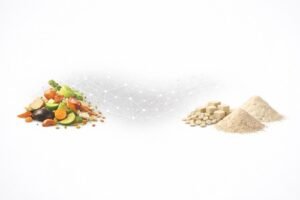Monday, 19 January 2026
Green Mediterranean diet may be even better for health
The findings suggest that green-MED diet, containing more green plants and less red meat in a flexitarian diet manner, may better reduce the LDL cholesterol The Mediterranean diet, rich in…

The findings suggest that green-MED diet, containing more green plants and less red meat in a flexitarian diet manner, may better reduce the LDL cholesterol
The Mediterranean diet, rich in plant-based foods, is linked to a lower risk of heart disease, stroke, and diabetes and currently forms the backbone of dietary guidelines to stave off coronary heart disease. It’s thought that its impact is related to higher dietary intake of polyphenols, phytosterols, ‘healthy’ fats, and fibers and lower animal protein intake.
The Ben-Gurion University of the Negev, Israel (BGU) researchers wanted to find out whether an ultra-green version of this diet that is higher in green plant-protein based food sources and even lower in red meat intake, might be even better for health and for dropping the bad cholesterol (LDL), which is usually challenging to accomplish by diet. They randomly divided 294 sedentary and moderately abdominally obese people (BMI of 31) with an average age of 51 into three dietary groups.
The first group received guidance on boosting physical activity and basic guidelines for achieving a healthy diet. The second received the same physical activity guidance and advice on following a calorie-restricted (1500–1800 kcal/day for men and 1200–1400 kcal/ day for women) traditional Mediterranean diet. The third group received physical activity guidance and advice on following a similar calorie-restricted green version of the Mediterranean diet (‘green Med’).
After six months, the effect of each of the diets on weight loss and on cardiovascular and metabolic risk factors was assessed. Those on both types of Mediterranean diet lost more weight: green Med 6.2 kg; Mediterranean 5.4 kg; healthy diet 1.5 kg. Waist circumference–an indicator of a potentially harmful midriff bulge–shrank by an average of 8.6 cm among those on the green Med diet compared with 6.8 cm for those on the Mediterranean diet and 4.3 cm for those on the healthy diet.
The green Med diet group achieved larger falls in ‘bad’ low-density cholesterol of 6.1 mg/dl, a reduction of nearly 4%. The equivalent figures were 2.3 mg/dl (nearly 1%) for those in the Mediterranean diet group, and null (0.2 mg/dl) for those in the healthy diet group.
These findings suggest that green-MED diet, containing more green plants and less red meat in a flexitarian diet manner, may better reduce the LDL (i.e. ‘bad’) cholesterol and may have a larger impact on public health.
Technology
FAO sets out three-year emergency and early recovery plan for Ukraine’s agrifood sector
Jan 19, 2026 | Europe
CSIRO partners on global project to boost food security
Jan 19, 2026 | Australia
NSF launches retail food safety audit program in ASEAN and Australia
Jan 19, 2026 | Australia
Food Testing
NSF launches retail food safety audit program in ASEAN and Australia
Jan 19, 2026 | Australia
Bringing PFAS testing to the point of need
Jan 16, 2026 | Australia
IMCD opens a Food & Nutrition Laboratory in Cologne
Jan 08, 2026 | Company News
More Popular
ADM invests $26Mn to expand Erlanger flavours facility to support food reformulation demand
Jan 19, 2026 | Company News
Beyond Meat introduces Beyond Immerse plant protein drink
Jan 19, 2026 | Beverages
FAO sets out three-year emergency and early recovery plan for Ukraine’s agrifood sector
Jan 19, 2026 | Europe





